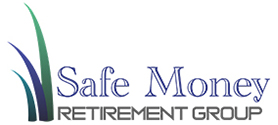Ben Kunes
Safe Money Retirement Group
1031 Exchanges and Tax Benefits
Use a 1031 Tax-Free exchange to move tax liability into the future
The real estate market can be a complex and unforgiving beast, and it is easy to make mistakes and be taken for a ride, particularly for the uninitiated. Most people are happy to get their property, pay their mortgage, and deal with it. The same is true for investment real estate.You may own property, wait for it to increase in value, and sell it. You will be exposed to income taxes, but you are still making a profit,But what if there was a way for you to bypass those taxes and move investment real estate without tax exposure? What if there was a way to save a great deal of money simply by following something called Section 1031? Section 1031 is a regulation that protects investment real estate owners who participate in something called an exchange. It frees them up from taxes and allows them to complete their transactions free of tax liability.Before explaining what Section 1031 is, it is important to understand the term “exchange.” In real estate, exchange refers to the ability to sell (exchange) property for like property. Now, because under Section 1031, the federal government does not recognize this as being taxable, there is a massive opportunity here to manage possible tax liability better. This only applies to investment property, and you will have to have the paperwork to prove it, but the benefits of exchanging investment properties are stunning. Not only do you get a full deferral of the capital gains tax, you relocate your investment, diversify it and possibly increase your cash flow. This constant changing of investment properties is a must-have in a continually changing market. One day the value might be up on one property and down on another, and the next day it might be the complete opposite. You should ensure that your portfolio is as diverse and ever-changing as the real estate market itself.Investment property cannot be exchanged for personal property, but investment properties of similar types can be exchanged, leading to you owing completely different pieces of real estate that may fall into the same category as the one you had before but are subject to new benefits, deductions and better tax management.For example, If you owned a residential rental building and exchanged it for an apartment building, you should qualify Section 1031. There is a 180-day time limit for these transactions to take place that is more than enough time if you and the person you are exchanging with are committed and organized to benefiting as much as you can from Section 1031. However, it should be noted that you yourself cannot be in charge of handling the exchange. That needs to be done by what is called a Qualified Intermediary (QI) (http://en.wikipedia.org/wiki/Qualified_intermediary). The QI creates the exchange contract, handles the banking and settlement statements of the exchange funds, keeps track of the deadlines, and does the accounting for tax purposes. The QI must be an impartial party not related to you or the person you are exchanging with and is the one who will organize and handle the transaction, so it is best to get them in as early as possible to meet the deadline for Section 1031.If you are prepared to put in the effort, you may find that the savings your investment property accumulates from Section 1031 are well worth your time and attention. Imagine the benefits enjoyed with this level of tax liability management than if you were selling your property and buying a new one. Those savings are too useful to pass up, and since you are already in the market, there’s no excuse not to switch to the S1031 exchange method. It is the logical next step in the investment real estate market and a chance that you as a consumer, an owner, and a taxpayer could benefit greatly from this allowed exchange.As with all important issues, always make sure you have received tax advice from a licensed and authorized professional.
Ben Kunes
Safe Money Retirement Group
6657 Winding Creek Way
St. Louis, Missouri 63129
ben.kunes@retirevillage.com
(314) 740-6278

Looking For Answers?
Download our Safe Money Guide and learn more about safe retirement options that can help you achieve your retirement goals safely - FREE!


